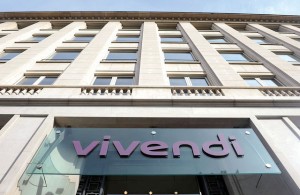
After more than 40 years of operation, DTVE is closing its doors and our website will no longer be updated daily. Thank you for all of your support.
Elliott and Vivendi trade insults as Telecom Italia battle rages on
 Media giant Vivendi and activist investor Elliott Management are continuing to engage in an increasingly aggressive war or words as the pair battle for the future of Telecom Italia (TIM), in which Vivendi remains the largest single shareholder.
Media giant Vivendi and activist investor Elliott Management are continuing to engage in an increasingly aggressive war or words as the pair battle for the future of Telecom Italia (TIM), in which Vivendi remains the largest single shareholder.
Responding to an appeal by Elliott to shareholders to reject Vivendi’s move to wrest control of the TIM board once more at the shareholder meeting scheduled for the end of this month, which sought to discredit the media group and its former chairman Vincent Bolloré’s business practices, Vivendi yesterday itemised Elliott and its chief Paul Singer’s controversial history of investment around the world and then provided detail of Elliott’s alleged malpractice in relation to TIM in particular.
Referring to the forced dismissal of the “deeply disappointing” Amos Genish at the end of last year, Elliott claimed that TIM had “achieved more in its first 100 days under the new CEO than the previous CEO had accomplished in over a year” and condemned Vivendi as “a profoundly negative and harmful nuisance” that had engaged in “a relentless public relations campaign filled with misinformation and waged solely for the purpose of regaining control of TIM”.
Elliott alleged that Genish had attacked his own board through the press and had withheld information, as well as declining to move to Italy to better fulfil the role of CEO. It said the new management had provide open to “creative solutions” to unlock value, including the possible separation of its network.
Elliott also attacked Vincent Bolloré’s alleged track record of poor corporate governance practices and argued that his involvement in TIM was compromised by a number of conflicts of interest. The investor said that Vivendi itself was run for the benefit of Bolloré and TIM would suffer the same fate if returned to Vivendi control.
Vivendi responded by itemising the plentiful episodes in Elliott’s history – such as its receipt of a large fine by the AMF over allegedly holding inside information prior to the sale of an investment, its alleged targeting of children and families of key individuals at target companies, its role in the dismantling of automotive parts giant Delphi – that show it in a less than flattering light.
Vivendi also condemned Elliott’s document as “full of misleading information and twisting of facts”, and highlighted its refusal to address the collar mechanism that protects it from the impact of TIM’s share price decline, allowing it to decouple risk from holding voting rights.
It also accused the investor of controlling a board that prevented TIM management from operating and created a “dysfunctional environment that has affected TIM’s share price”.
Vivendi said that Elliott’s board had been responsible for many irregularities and repeated breaches of the civil code, internal regulations and the Italian financial code.
“Despite Elliott’s lies, Vivendi has no intention to control TIM or to appoint anyone as chairman or CEO,” the company said. “Vivendi is a long-term investor with no collar tricks and only one objective: a neutral board that represents all shareholders.”

